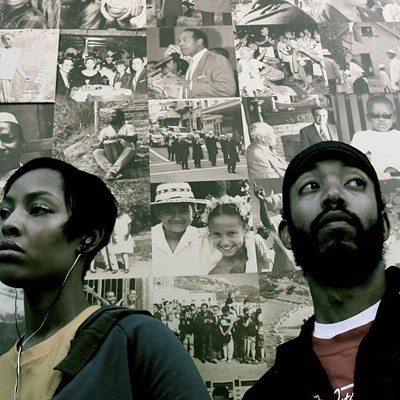So it seems strange that the former Black Francis would set up shop in Hollywood and record a CD's worth of covers by artists that have influenced him, including Neil Young, Leonard Cohen, Warren Zevon and Todd Rundgren. It's a welcome homage to his--waitaminit.
It says here "All songs written by Frank Black."
OK, maybe this is a tribute to those influences?
After the guitar-stomping ode to goth-rock chicks ("Nadine") that opens the album, Black tips his hat to Young and memories of rock clubs past in "Everything is New" ("Chesney quit the Army and he started a band/ he used to play that club down at Hermosa Strand/ I think they're changing the name again") before burning an offering to Cohen in "My Favorite Kiss."
Black turns Tex-Mex for the good-time organ grind of "Jaina Blues," and on the surface, this goes against the grain of the album's theme: 13 songs that represent 13 tears shed for the lost loves in Black's life. The piano dirge "New House of the Pope" reaches into the most maudlin chamber of Black's broken heart ("When she said she did not love me/ that's when I lost all hope/ so I jumped into a river/ called the new house of the pope").
For all of Black's lip service to heartbreak, he manages to infuse an uplifting spirit into most of the songs. He sounds like he' s having a hell of a lot of fun, and the fun is contagious. Shane McGowan-era Pogues gets a nod on "When Will Happiness Find Me Again," and Lou Reed gets the nod on "The Snake," which could easily pass for a outtake from The Velvet Underground's first album.
Not every song sounds like a homage, but Black personalizes every tribute, intentional or no. He's never derivative. If every broken heart resulted in an album like Show Me Your Tears, there would be a lot less griping by rock critics about the sorry state of modern music.






